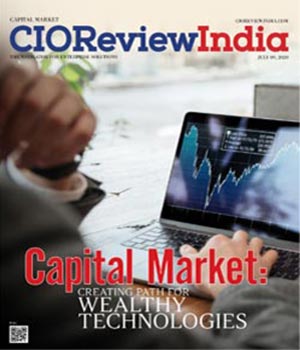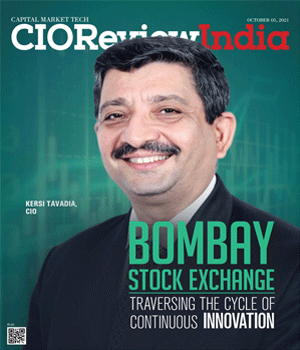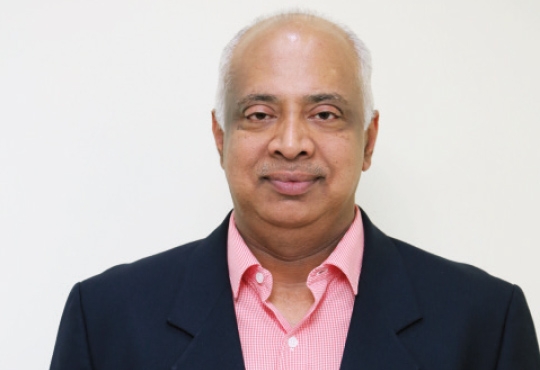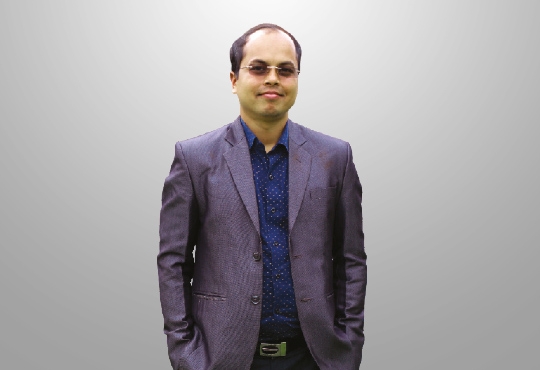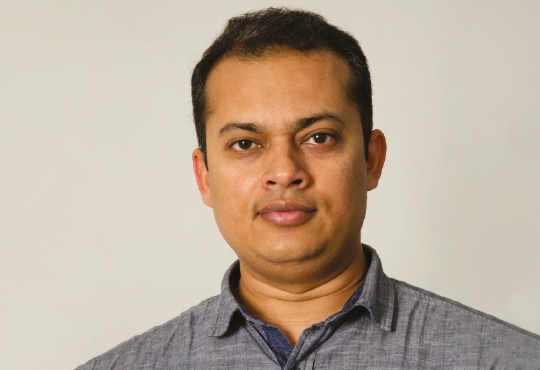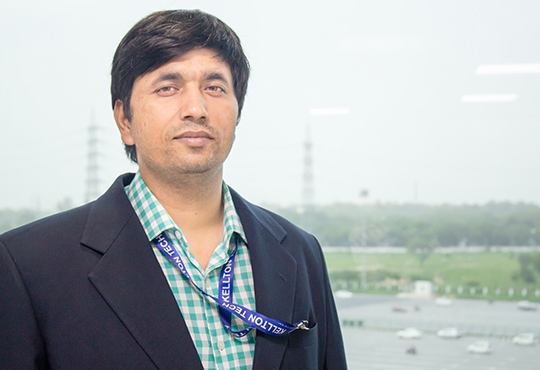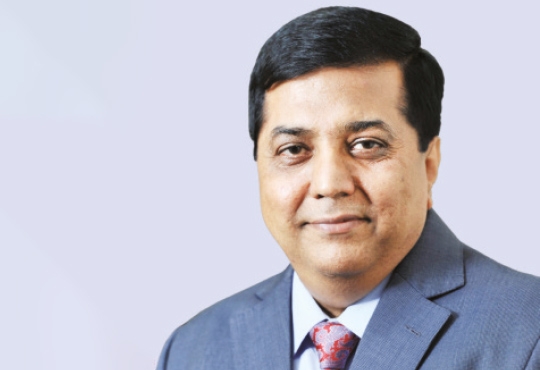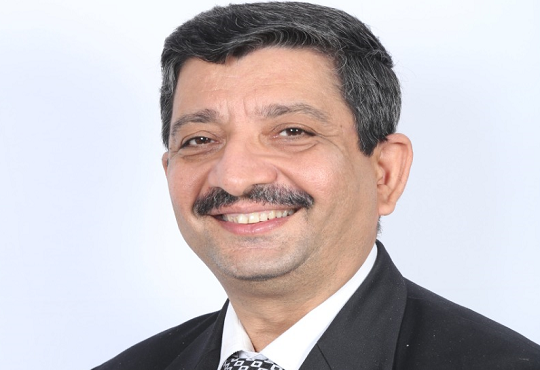
Essentials for the CFOs
Ajay Kumar, Senior Director, Sales Consulting ERP & EPM, Oracle India | Tuesday, 10 July 2018, 05:53 IST
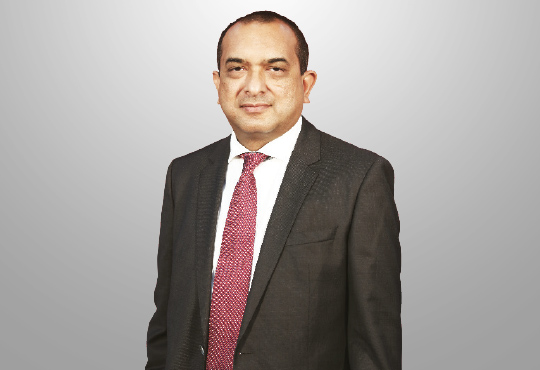 Oracle offers an optimized and fully integrated stack of business hardware and software systems to its 400,000 customers in more than 145 countries around the globe. In India, Oracle works with more than 7,000 customers with help from over 1,000 partners, across the private, public and government sectors.
Oracle offers an optimized and fully integrated stack of business hardware and software systems to its 400,000 customers in more than 145 countries around the globe. In India, Oracle works with more than 7,000 customers with help from over 1,000 partners, across the private, public and government sectors.
CR: What are the challenges faced by the finance teams in terms of data management?
Ajay: As CFOs look to navigate a course through economic uncertainty, visibility is their key challenge. It’s harder than ever for CFOs in India to reasonably predict what the future holds – businesses are evolving faster than ever, and unpredictable macroeconomic events are becoming commonplace. CFOs need to find a way to better predict external market conditions while having complete visibility of internal business performance. Linked to this challenge is the CFO’s role in helping the business react to digital disruption. CFOs need to understand how digital technologies can enable more customer-centric business models while increasing employee productivity. Data is critical – CFOs need to ensure they have access to all relevant data to power these services as well as improve their general decision making. Having access to the right data is now a competitive differentiator.
"The ERP platform must be able to handle the wealth of information created by IoT sensors, in addition to the data it already processes"
The older generations of CFOs are finding their role is being disrupted. In the past, CFOs relied on a small and trusted team to analyses business data such as financial performance, sales figures and employee productivity; and they drew their own conclusions from the data. New digital capabilities mean ‘machines’ can now analyses data much more efficiently and effectively than humans. The CFO is increasingly tasked to derive actionable insights from vast volumes of data, rather than simply analyze reports. Millennials are thriving on this shift, while the older generations of CFOs are finding it difficult to purely rely on technology to provide insights.
CR: Why should CFOs across organizations adopt IoT and AI? How are they going to change and modernize the way businesses are done?
Ajay: According to Allied Market Research, the global ERP software market will surpass a value of USD 41billion by 2020. At the same time, IDC is predicting that in the similar time frame, global IoT spend will total nearly USD 1.4 trillion as organizations continue to invest in the hardware, software, services and connectivity required to enable IoT. As both these processes are showing a huge propensity to grow, they are also overlapping. By 2022, IoT enabled ERP is poised to become a huge opportunity for the organizations as this market is expected to reach close to USD 50 billion by 2022.
This overlapping of ERP and IoT seems inevitable. Data from IoT will further enhance ERP systems’ efficiency. Insights from AI and machine learning will further strengthen the ERP systems. This culmination will enable business leaders to take better decisions based on data driven insights. For example, sensors can communicate details about lack of or excess of inventory, allowing supervisors to better manage ordering and replenishment while minimizing the possibility of human error.
This parlance can be extended to all the functions of organizations and the advantages that can be reaped are not difficult to imagine – production efficiency, quality control, customer service etc. However, there are a few considerations that organizations need to make while opting for ERP and IoT integration. The ERP platform must be able to handle the wealth of information created by IoT sensors, in addition to the data it already processes. Another consideration is data security capabilities in place across both platforms. To support information driven decisions as well as protection, businesses will need to ensure end-to-end safeguarding, especially as data assets travel from one system to another.
CR: What is the role of Oracle ERP systems in revolutionizing and making the business outcomes much simpler?
Ajay: Today, IoT is revolutionizing the way businesses function. Oracle IoT Cloud Applications and IoT Cloud Platform have helped many companies to improve the efficiency of their operations, sparking innovation to improving their products/services and discovering new business models.
Oracle’s strategy is focused on revolutionizing businesses through IoT applications by extending them to the physical world as well as integrating organizational silos (Design, Manufacturing, Logistics, Transportation Service) in real-time throughout the digital supply chain. Oracle’s IoT Applications eliminate manual processes by creating ‘Digital Thread’ and workflows from enterprise assets to SCM, ERP & CX applications and, thus, provide an end-to-end view of the entire manufacturing lifecycle. IoT uses the assets master data, productions plans and prebuilt workflows etc from ERP systems.
CIO Viewpoint
BSE - Traversing the Cycle of Continuous...
By CIOReviewIndia Team
Enabling Financial Inclusion on a Digital Platform
By Manoj Kumar Nambiar, Managing Director and Arvind Murarka, Head IT at Arohan Financial Services (P) Limited
Key Tech Trends for Capital Markets
By Dipak Rout, Head-IT, ArihantCapital Markets Ltd
CXO Insights
By Supriyo Dasgupta, IT Applications Head, Compass Group India
The T Minus 10 Of AI - Getting Started with the...
By Sushil Kumar Tripathi, AVP - Technology, Kellton Tech
Digitization in Insurance Industry


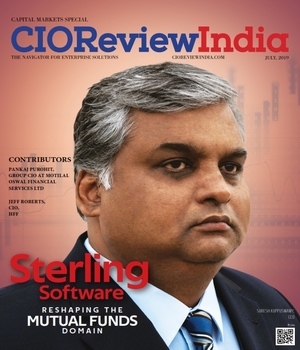
.jpg)
.jpg)
